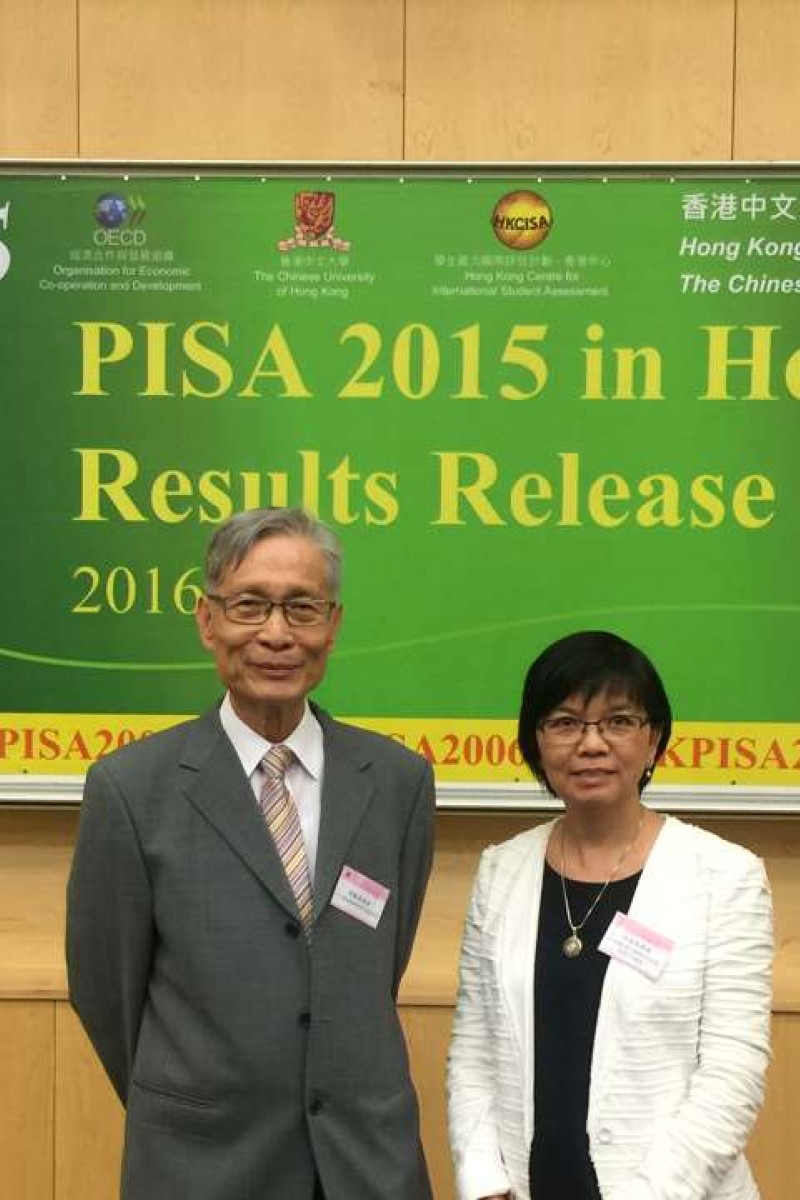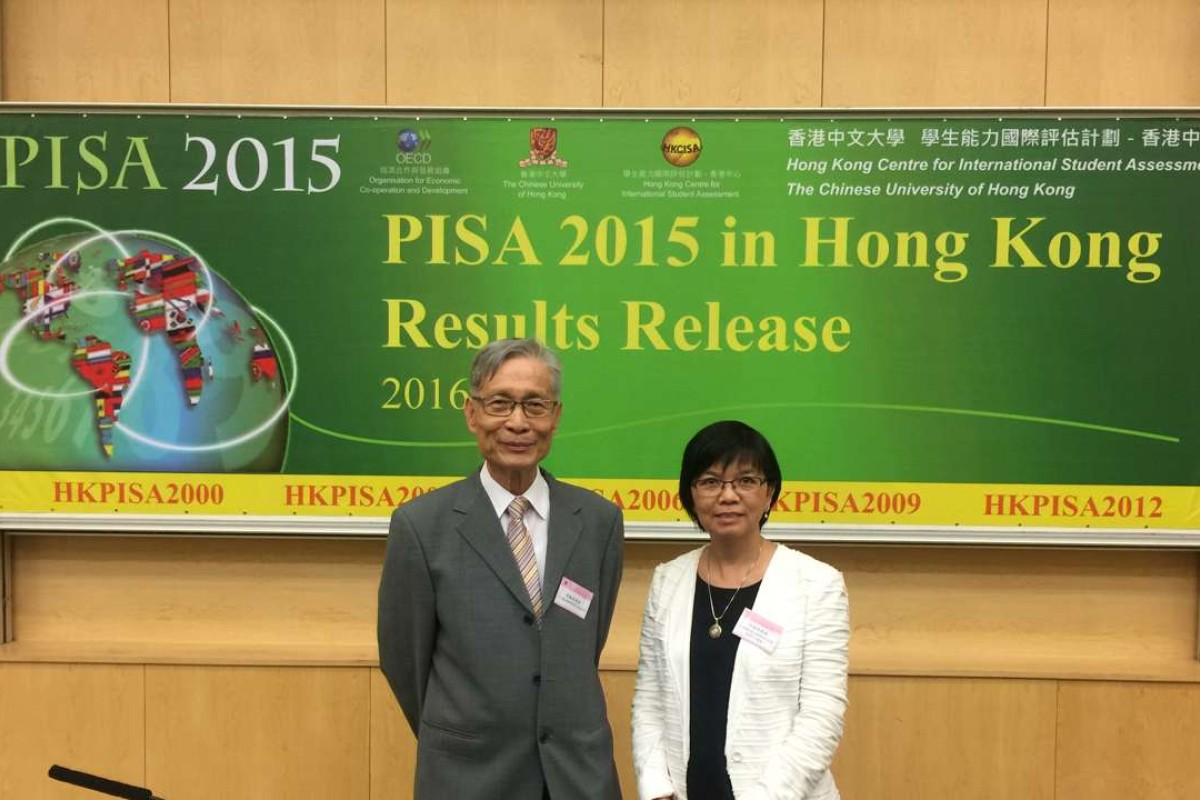
But the city falls way behind other Asian countries when it comes to science and reading
 Professor Wong Hin-wah, adjunct professor at Chinese University’s education department (left) with Professor Esther Ho Sui-chu. Ho says students might struggle with science subjects because the DSE doesn’t encourage critical thinking.
Professor Wong Hin-wah, adjunct professor at Chinese University’s education department (left) with Professor Esther Ho Sui-chu. Ho says students might struggle with science subjects because the DSE doesn’t encourage critical thinking. Even though they ranked second in the world for maths, Hong Kong students performed a lot worse in the latest global education survey – especially in science subjects.
The latest report by the Programme for International Student Assessment (Pisa) was based on surveys of more than half a million 15-year-olds in 72 countries and regions in 2015.
In April and May last year, almost 5,400 Hong Kong students from 150 schools were randomly selected to take the assessments.
They dropped 32 points in science, 18 in reading and 13 in maths since the 2011 test.
The assessments also showed that only 0.4 per cent of Hong Kong pupils achieved top scores – level 6 – while the pupils from Organisation for Economic Cooperation and Development (OECD) countries scored 1.1 per cent. Some 6.7 per cent of Hong Kong pupils scored level 5 or above.
Singaporean 15-year-olds had the highest scores in reading, maths and science in the world.
Hong Kong’s students ranked second in the world in last year’s maths assessment – up from third in 2011. While they remained in second place for reading, their scores in science dropped from second to ninth place. That puts them well below other Asian countries, including Singapore, Japan and Taiwan, which came first, second and fourth, respectively.
“According to the Education Bureau, some 40 per cent of Form Five students chose chemistry, biology and physics in 2008/09. But in 2014/15, only 4.41 per cent of Form Four students selected these three science subjects. It seems that they didn’t have enough of a scientific background, which partly explains why local pupils’ science performance declined,” he said.
The assessments also showed that only 0.4 per cent of Hong Kong pupils achieved top scores – level 6 – while the pupils from Organisation for Economic Cooperation and Development (OECD) countries scored 1.1 per cent. Some 6.7 per cent of Hong Kong pupils scored level 5 or above.
Professor Esther Ho Sui-chu, director of the Centre for International Student Assessment in Hong Kong, said that the reason students did worse in science was partly because they struggled to adapt to the new computer-based assessment.
Professor Lau Kwok-chi from Chinese University’s Education Department also said that less students were choosing science subjects for their DSEs, leading to the drastic decline in last year’s science test.
“According to the Education Bureau, some 40 per cent of Form Five students chose chemistry, biology and physics in 2008/09. But in 2014/15, only 4.41 per cent of Form Four students selected these three science subjects. It seems that they didn’t have enough of a scientific background, which partly explains why local pupils’ science performance declined,” he said.
Ho called for a review of the DSE science subjects, which she said failed to improve critical and inquisitive thinking, an essential skill for science subjects.